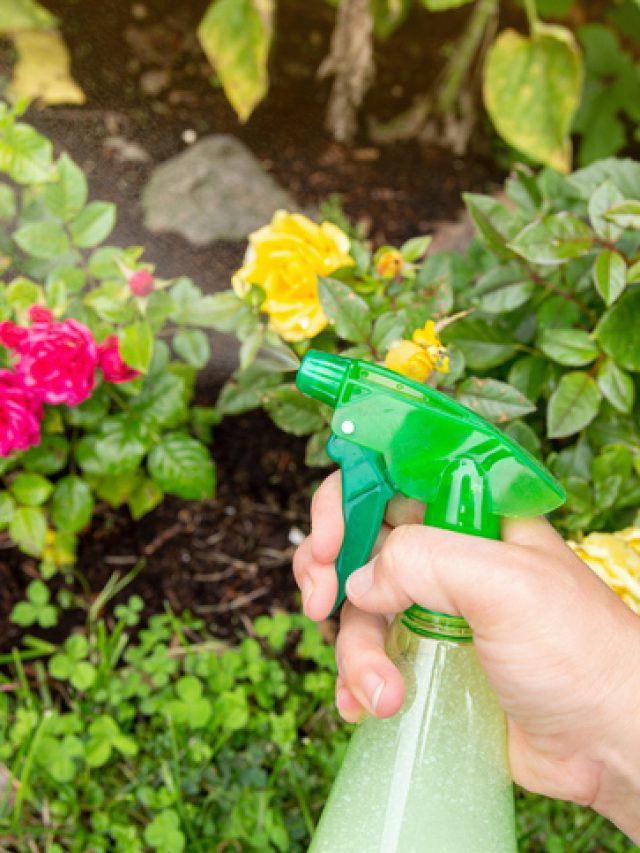Black thrips in chilli and other crops mainly affect the flowering stage of the crops causing flower drop and affecting the fruit set. They are usually found in citrus crops but affect other crops as well.
Black Thrips in Chilli Symptoms
Black thrips suck out the leaf juices and are mainly seen on the lower surface of the leaves. Adults colonize on the flowers and lower leaf surface, while larvae limit themselves to the lower leaf surface. Such infested leaves will have elongated petioles, form crinkles, make them appear silvery, and curl upwards. The buds can become brittle causing them to fall down. Brownish streaks on flower petals are formed because of scraping by adults. The infestation in the early stage could lead to stunted growth and can also affect flower production which leads to reduced yield. Even if the fruits are formed, they will be malformed or improper due to the attack on the flowers. Sometimes the fruits show stunted development as well.
Preventive Measures
- Practicing intercrop with agathi/maize/sorghum gives shade to the growing crops thereby reducing the growth of thrips.
- Growing of 2-3 rows of border crops like sorghum or maize can minimize their movement from adjacent fields.
- Planting trap crops like marigolds in between the field can reduce the damage to some extent.
- You must not grow chili right after a set of sorghum.
- Mixed cropping with onion and chili is also not a good practice.
- While watering the seedlings, simply sprinkle the water which will reduce thorp multiplication.
- Installing blue, yellow, and white sticky traps @ 60-70 traps/ha at crop height helps in the mass trapping of thrips.
- Spraying of neem oil (10000 ppm) at 2 ml per 1 liter of water acts on the eggs of thrips and also acts as an antifeedant which limits the damage to the crop.
Chemical Control for Black Thrips in Chilli
- Keefun Insecticide is one of the most effective chemical controls successful against sucking pests such as thrips. It is made of 15% EC of Tolfenpyrad. This wide-spectrum insecticide has an anti-feeding mode of action. Here, the pests or thrips that come in contact with the product on the plant parts will immediately stop feeding. It is effective on pests in different growth stages thereby providing complete protection. Simply mix 1.5 to 2 ml of the insecticide in one liter of water and spray on the crops.
- Delegate Insecticide comes under the spinosin class that can provide long-term effects in controlling thrips and other types of pests. The active ingredient here is Spinetoram 11.7% SC, a bacterial extract that can act fast and kill the target. It acts translaminar and is effective in lower doses. They do not majorly affect the beneficial insects and thus help promote the healthy growth of the crops. The dosage required here is 0.9 ml in one liter of water or just 180 ml for an acre and apply it in the evening for better effects.
Black thrips in Chilli can also be controlled by the under-mentioned chemicals.
- Gracia Insecticide belongs to isoxazoline class with broad-spectrum activity. The active ingredient in it is Fluxametamide 10% EC. It is a translaminar insecticide that is effective when ingested or through contact. Gracia is safer for beneficial insects and mammals e environmentally friendly. The dosage to be used is either 1 ml of Gracia in 1 liter of water or 160 ml of Gracia is sufficient for spraying in a 1-acre crop area. Spraying Gracia in the early stage of pest attack results in better control.
- Exponus Insecticide, a revolutionary product, and a new tool in Insecticide Resistance Management (IRM), to overpower yourself against insects that are difficult to control. Exponus contains Broflanilide 300 g/l SC, a meta-diamide that is effective against thrips. Exponus should be preferably applied in the morning and evening and spraying of this product should during an active period of bees. 34 ml of exponus can be used for a 1-acre crop area.
- EM 1 Insecticide contains Emamectin Benzoate 5% SG belonging to the Avermectin group of insecticides. It provides effective control of insects by its contact and stomach poison action. It exhibits translaminar action which helps in the control of thrips that are present on the lower leaf surface. The residue of this chemical is low and hence can be used in Integrated Pest Management (IPM). 80 gm of EM 1 insecticide is sufficient for a one-acre area.
List Of Chemicals To Control The Black Thrip Attack
| Sl.No. | Insecticide | Dosage per litre of water |
| 1 | Alanto | 2mL/L |
| 2 | Osheen | 0.4 gm /L |
| 3 | Benevia | 2mL/L |
| 4 | Keefun | 1.5-2 mL/L |
| 5 | Delegate | 0.9 mL/ltr |
| 6 | Largo | 0.9 mL/ltr |
| 7 | Jump | 0.3 gm/L |
| 8 | Regent | 1.5 mL/L of water to 2 ml/L |
| 9 | Pegasus | 1 gm/L |
| 10 | Danitol | 2 mL/L |
| 11 | Gracia | 1 ml/lit water or 160 ml/acre |
| 12 | Exponous | 34 ml/acre |
| 13 | EM1 | 0.4 gm/lit water or 80 gm/acre |
Conclusion
An integrated pest management system is essential for any crop to effectively reduce infestations. Do make sure to use the insecticides only as recommended. We hope that this information will be helpful to you. To get all kinds of information related to crops visit our website https://kisanvedika.bighaat.com/ or give a missed call on our toll-free number 1800 3000 2434.
Note: The information contained herein is for informational purposes only. Nothing herein shall be construed to be financial or legal advice. Pesticides are a considerable risk of loss in crops and viewers are advised to do their own research before making any decisions.







